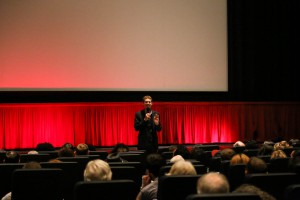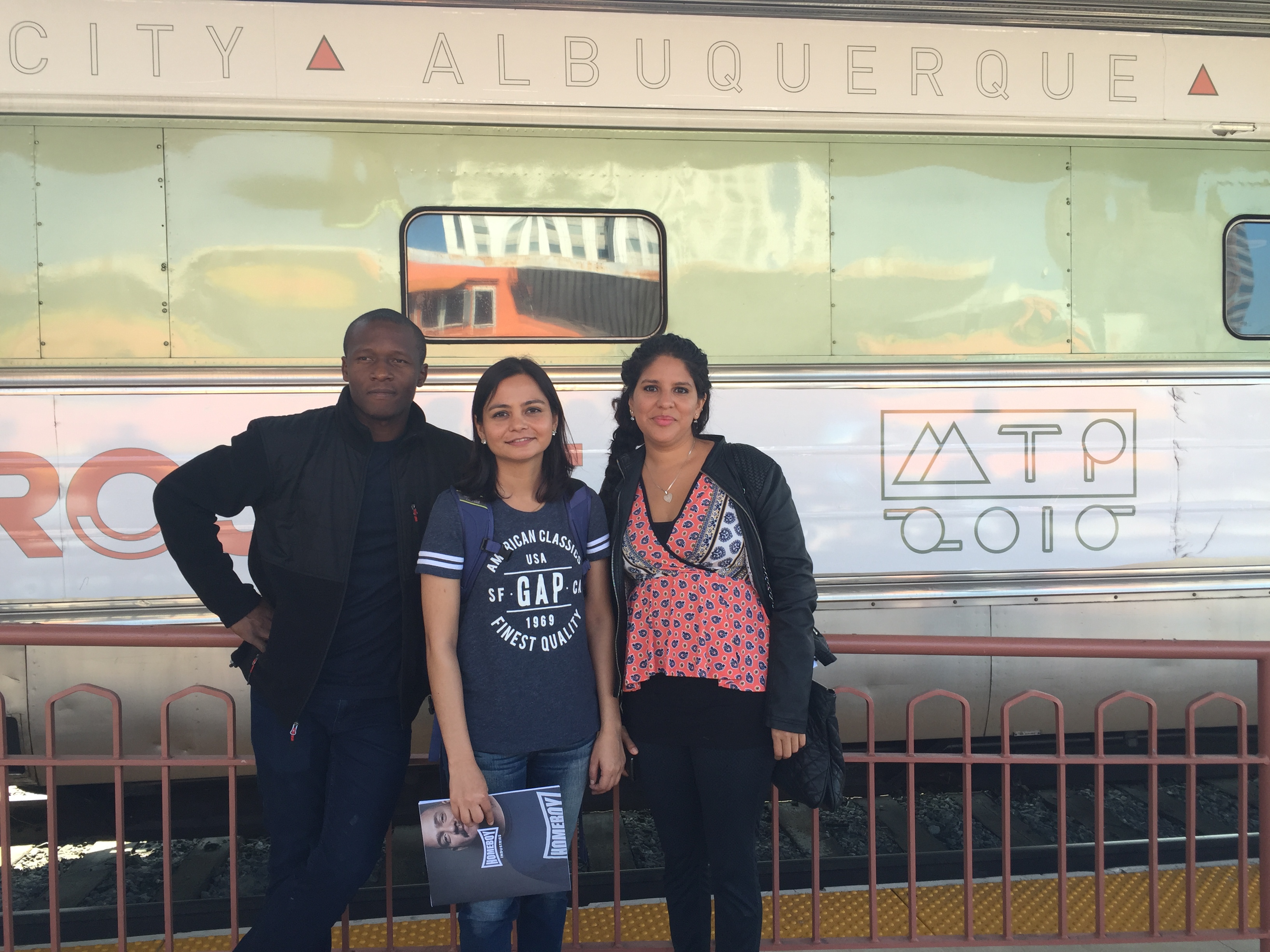
Egill Bjarnason, 2013-2015, Iceland, introducing his short documentary film, “Once the Ice Melts,” to a full house at the Del Mar Theatre in downtown Santa Cruz
In between a gloomy forecast on the future of capitalism and an Op-Ed about why everyone should walk barefoot, the Question of the Week in the student-run newspaper, City on a Hill Press, asked what kind of action people were taking to help the California water rationing. One undergrad no longer kept the tap running while brushing teeth. Another took shorter showers. The third took no showers at all. The fourth, pictured deadpan in a hoodie featuring the school mascot Sammy-the-Slug, was apparently “only drinking espressos because of the drought.”
UC Santa Cruz is the strange uncle in the University of California system, founded fifty years ago to embrace the “eccentric imagination.” Like all UC campuses, it is a research university. Yet the graduate population is less than 1,600, compared with some 10,500 and 12,200 graduate students at UC Berkeley and UCLA respectively. Here, redwood trees outnumber students.
During my Fulbright Program, there were just seven of us in my M.A. program in Social Documentation (SocDoc): seven would-be filmmakers driven to promote social justice through documentary production. Our thesis work resulted in short documentary films, ranging from one tackling California’s prison-industry complex to another about the dark side of chocolate, following the trade-route of cacao beans to its source in Panama’s virgin rainforest. My project (“Once the Ice Melts”) documents the fate of young adults in a hunting community in East Greenland.
SocDoc is for the practical polymath: I was challenged by faculty to become a one-man band, shooting a film production solo and articulating my project in a research paper, as well as taking classes in creative and ethnographic writing. Alongside all that, I had my duties as a teaching assistant (TA) in photography and statistics.
Teaching Assistantships are an example of how graduate schools in the United States are so much more than just attending classes and completing assignments; they are about contributing to a learning community. Being part of the Fulbright Program further extended that experience. Attending Fulbright events and seminars allowed me to connect with fellow grads who still spoke English with a thick accent and shared a fresh eye on American life. The highlight was traveling to a Fulbright Enrichment Seminar in Philadelphia.
I am Icelandic — Yes, people live there.
Feeling smug in their own knowledge, Californians commonly shared with me the one single fact they know about the North: that Iceland is green and Greenland is ice, a mix-up known as the first PR-trick in history. I tried not to spoil their satisfaction by pointing out that they probably picked this up in the 90s blockbuster “The Mighty Ducks” which can hardly count as a peer-reviewed source.
But I, too, knew nothing more about the California Republic than what pop culture had shown me, before moving to Santa Cruz. Two years later, I have tasted twelve types of tofu, met grown men who use the word “hella” on a regular basis, shared a campus with a wild mountain lion, and made life-long connections with locals and internationals alike, thanks to the SocDoc program and the Fulbright Foreign Student grant. Hella good.


No Comments